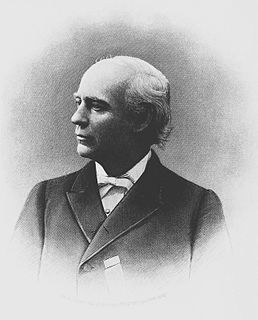T. Canby Jones (September 21, 1921 in Karuizawa, Japan – February 13, 2014) was an advocate of the War of the Lamb, a Quaker peace activist, a professor emeritus of Wilmington College in Ohio, and was a student of Thomas R. Kelly. [1] T. Canby Jones died in Paoli Memorial Hospital, suburban Philadelphia, Pennsylvania. [2]

Pacifism is opposition to war, militarism, or violence. The word pacifism was coined by the French peace campaigner Émile Arnaud (1864–1921) and adopted by other peace activists at the tenth Universal Peace Congress in Glasgow in 1901. A related term is ahimsa, which is a core philosophy in Hinduism, Buddhism, and Jainism. While modern connotations are recent, having been explicated since the 19th century, ancient references abound.

Wilmington College is a private career-oriented liberal arts institution established by Quakers in 1870 in Wilmington, Ohio, United States. The college is accredited by the Higher Learning Commission.
Contents
Jones was a son of Esther Alsop Balderston Jones (1894(?)–1967) and Thomas E. Jones (1888–1973), who was president of Fisk University, 1926–1946, and of Earlham College, 1946–1958. He graduated from Westtown Friends' Boarding School (1938), Haverford College (1942), and Yale University (1955), where he earned divinity and Ph.D. degrees.
Thomas Elsa Jones was the fifth president of Fisk University, serving from 1926 to 1946. He was also president of Earlham College. A Quaker, Jones served as a missionary with his wife in Japan.

Fisk University is a private historically black university in Nashville, Tennessee. The university was founded in 1866 and its 40-acre (160,000 m2) campus is a historic district listed on the National Register of Historic Places.

Earlham College is a private liberal arts college in Richmond, Indiana. The college was established in 1847 by the Religious Society of Friends (Quakers) and has a strong focus on Quaker values such as integrity, a commitment to peace and social justice, mutual respect, and community decision-making. It is primarily a residential undergraduate college but it offers a Master of Arts in Teaching and has an affiliated graduate seminary, the Earlham School of Religion, which offers three master's degrees: a Master of Divinity, Master of Ministry, and Master of Arts in Religion.
During World War II he was a conscientious objector, serving primarily in a Civilian Public Service camp in Trenton, North Dakota. He married Helen Eunice Meeks while in CPS on August 19, 1945. Immediately after the war he and his wife went to Finnmark province in north Norway where they did postwar reconstruction work under the auspices of the American Friends Service Committee.
A conscientious objector is an "individual who has claimed the right to refuse to perform military service" on the grounds of freedom of thought, conscience, or religion.

The Civilian Public Service (CPS) was a program of the United States government that provided conscientious objectors with an alternative to military service during World War II. From 1941 to 1947, nearly 12,000 draftees, willing to serve their country in some capacity but unwilling to perform any type of military service, accepted assignments in work of national importance in 152 CPS camps throughout the United States and Puerto Rico. Draftees from the historic peace churches and other faiths worked in areas such as soil conservation, forestry, fire fighting, agriculture, under the supervision of such agencies as the U.S. Forest Service, the Soil Conservation Service, and the National Park Service. Others helped provide social services and mental health services.
The American Friends Service Committee (AFSC) is a Religious Society of Friends (Quaker) founded organization working for peace and social justice in the United States and around the world. AFSC was founded in 1917 as a combined effort by American members of the Religious Society of Friends to assist civilian victims of World War I. It continued to engage in relief action in Europe and the Soviet Union after the Armistice of 1918. By the mid-1920s it focused on improving racial relations in the U.S., as well as exploring ways to prevent the outbreak of another conflict before and after World War II. As the Cold War developed, it moved to employ more professionals rather than Quaker volunteers, and over time attempting to broaden its appeal and respond more forcefully to racial injustice, women's issues, and demands of sexual minorities for equal treatment.
He served as a Professor of Religion & Philosophy at Wilmington College from 1955 until his retirement in 1987. His book publications include George Fox's Attitude Toward War; A Documentary Study (Friends United Press, 1984), "The Power of the Lord Is Over All": The Pastoral Letters of George Fox (Friends United Press, 1989), and Thomas R. Kelly As I Remember Him (Pendle Hill, 1989).
He was a founding member of the Friends Association for Higher Education (FAHE), and a charter member of Campus Friends Meeting in Wilmington, Ohio. His professional and personal papers are held by the S. Arthur Watson Library Special Collections, Wilmington College (Ohio).









